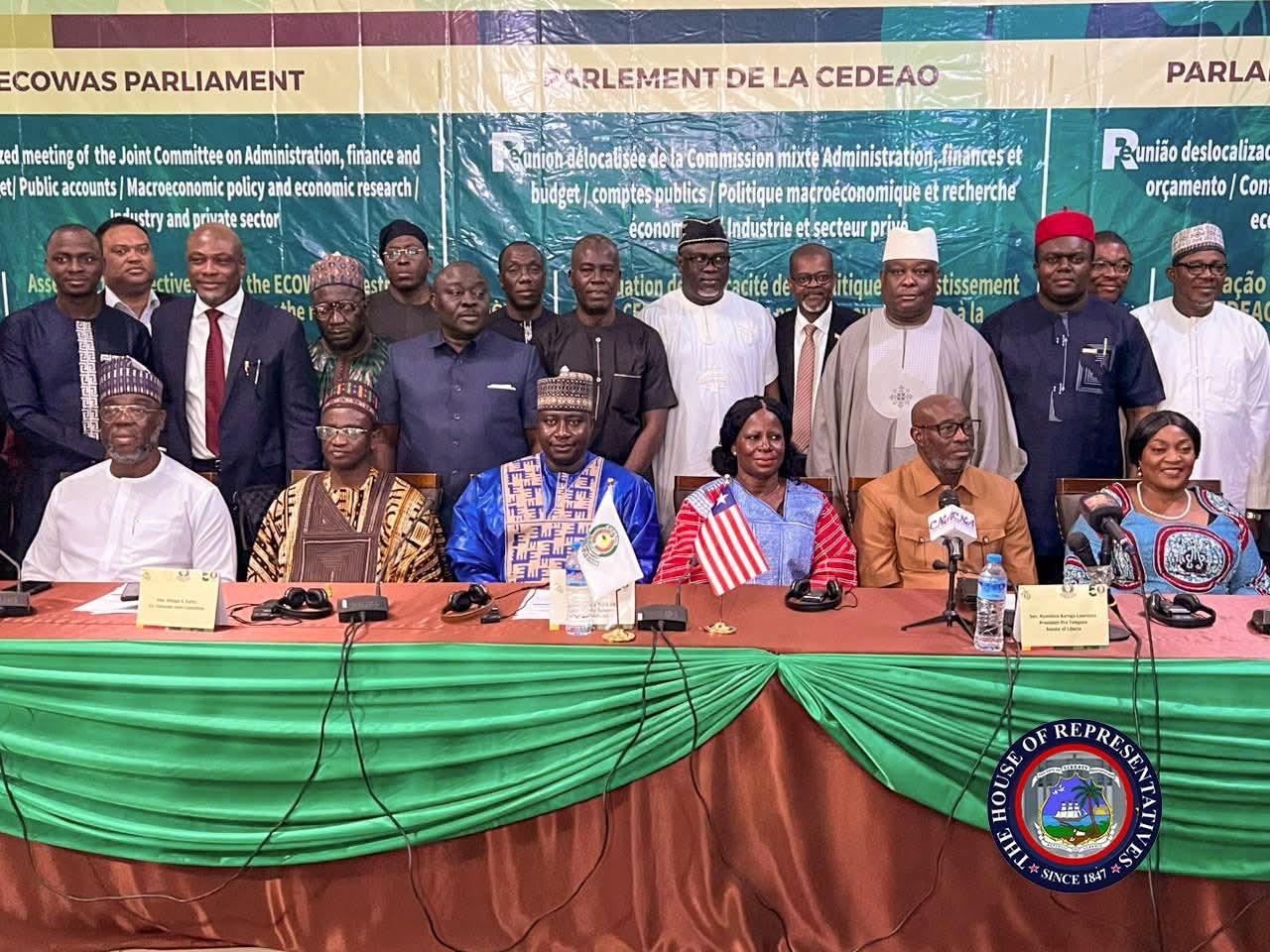Africa-Press – Liberia. Lawmakers from the ECOWAS Parliament are meeting in Monrovia for a five-day session to review the effectiveness of the ECOWAS Investment Policy (EIP) in tackling youth unemployment across West Africa.
The meeting is being held under the theme: “Assessing the Effectiveness of the ECOWAS Investment Policy as an Instrument for Addressing the Rising Levels of Unemployment in the Sub-region.”
The gathering brings together members of the ECOWAS Joint Committee on Administration, Finance and Budget, Public Accounts, Macroeconomic Policy and Economic Research, Industry, and the Private Sector. The focus is on how investment can create inclusive job opportunities in a region where youth unemployment is estimated at 30 percent.
In his opening remarks, Fourth Deputy Speaker of the ECOWAS Parliament, Billay G. Tunkara, described youth unemployment as a threat to social stability and economic progress. He acknowledged that although member states have made gains in areas such as trade and infrastructure, challenges like poor investment implementation and weak infrastructure continue to prevent equitable development.
Tunkara explained that the ECOWAS Investment Policy aims to create an environment that attracts investment, supports small and medium-sized enterprises (SMEs), promotes public-private partnerships, and targets sectors such as agriculture and manufacturing. However, he said many investments are not aligned with sectors that can absorb large numbers of workers, limiting their impact on job creation.
“Access to affordable finance remains a major obstacle for small businesses,” Tunkara added. “The uneven spread of investment across the region has also contributed to disparities in development and employment opportunities.”
Bomi County Senator Edwin Melvin Snowe, who heads Liberia’s ECOWAS Parliament delegation, said the meeting is timely given the scale of the problem. He called unemployment a social emergency that fuels migration and threatens regional peace. Snowe said Liberia is especially affected and welcomed the decision to host the event in Monrovia as a show of commitment to youth empowerment.
Senate Pro Tempore Nyonblee Karnga-Lawrence said Liberia has introduced legal reforms to reduce bureaucratic hurdles and improve access to education and training.
She highlighted efforts to attract investment and prepare young people for the job market. Karnga-Lawrence also referenced Liberia’s recent election to the United Nations Security Council, calling it an opportunity to champion youth development and regional cooperation.
Alhagie S. Darbo, Chair of the ECOWAS Committee on Macroeconomic Policy and Economic Research, emphasized that the investment policy must move from ideas to action. He said the focus must shift toward real job creation and inclusive growth. “Our role as lawmakers is to ensure that policies benefit youth, women, and small businesses,” Darbo said.
Speaking on behalf of Foreign Minister Sara Beysolow Nyanti, Deputy Minister Gabriel Salee stressed the urgency of delivering results. He warned that the region’s youth are growing increasingly frustrated by limited job opportunities. Salee called for coordinated efforts to improve vocational training and expand financing options for entrepreneurs.
Delegates acknowledged progress under the EIP, including increased foreign investment and better alignment of national policies with ECOWAS goals. However, they also noted key gaps remain—particularly in infrastructure, policy enforcement, and the quality of jobs being created.
The meeting closed with a shared understanding that ECOWAS member states must now act decisively. With youth unemployment threatening long-term stability, lawmakers agreed that the ECOWAS Investment Policy must be effectively implemented to deliver real economic opportunities across the region.
For More News And Analysis About Liberia Follow Africa-Press






